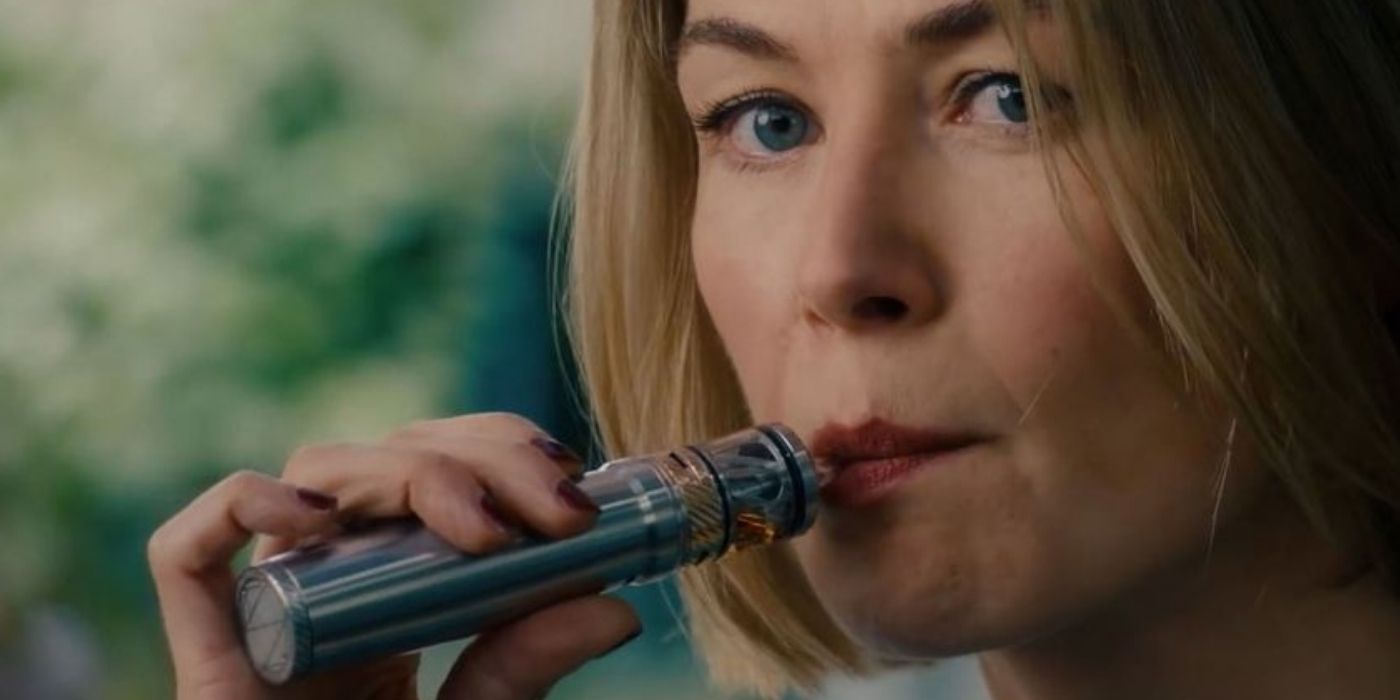WARNING: The following contains spoilers for I Care a Lot, now streaming on Netflix.
With the release of two movies, both dealing with similar subject matter, the topic of conservatorship has recently been on the mind's of many. While one film documents the situation of a real-life person, Britney Spears, and the other is a theatrical Hollywood production, both projects shed light on an issue many folks might not have given much thought to.
J Blakeson’s I Care a Lot takes the horror of predatory guardianship and amplifies the melodramatics. But, as shown in the New York Times documentary, Framing Britney Spears, taking advantage of the system is something that can and does happen. Due to outdated laws, the chances of the assigned guardian getting away with fraudulent behavior is far too high.
I Care a Lot focuses on Marla Grayson (Rosamund Pike), a woman who has made a career out of preying on the elderly. After she gets a false diagnosis from a patients’ corrupt doctor, Marla brings the case to a judge, who declares her their legal guardian. Although the seniors she’s appointed to are still of sound mind, the diagnosis states they are mentally and physically unable to care for themselves any longer. In turn, Marla is now in charge of everything from all of their assets to every personal and financial decision.
In real life, every state currently allows for a legal guardian or conservator to make decisions for someone the court decides is incapable of making decisions for themselves. As is true for many laws, the ambiguous laws dealing with guardianship need a massive overhaul. For example, in certain states like New York, professional guardians are only required to pass a one-day certification course.
What's more, according to the AARP Public Policy Institute, “laws in most states require courts to follow certain procedures for screening guardians. However, only 13 states conduct criminal background checks on all potential guardians.” In 2018, the U.S. Senate Special Committee on Aging drafted a report explaining the necessity of an overhaul and urged all states to acquire the act. Only Washington and Maine have done so.
Essentially, I Care a Lot paints an exaggerated picture of a very real problem. Physical and mental elder abuse can and has occurred when guardianships are non-familial and court-appointed. “In Marla’s approach, a lot of it happens, unfortunately. It’s true to life in the fact that there are lots of the predatory guardians who prey on vulnerable and elderly people, and sort of entrap them in these guardianships and basically sort of strip their life apart,” said Blakeson in a recent interview.
Predatory Legal Guardianship
To date, the most easily accessible, real-life display of seemingly predatory legal guardianship can be seen in the New York Times’ documentary, Framing Britney Spears. The film delves into Spears’ early life, her multiple mental breakdowns (including two hospitalizations in a psychiatric ward) and the personal and financial control granted to her father in 2008. The documentary also showcases the #FreeBritney movement, which was started by concerned fans.
Shortly after Spears’ second stay in a psychiatric hospital, her father Jamie Spears was granted temporary conservatorship of her “Person” and “Estate.” The once-temporary conservatorship became permanent at the end of 2008. Similar to what's depicted in I Care a Lot, Spears has been in a "general probate conservatorship." This type of legal guardianship will last until death unless terminated by court order. That said, the conservatee has the right to petition for its termination.
In general, her father was granted decision-making responsibilities, control of her living situation, health care (including medical and psychiatric treatment), social needs, etc., but specific details of the arrangement have never been made public. The documentary also indicates that Spears’ conservator has authority to ban or place restrictions on her visitors as Marla does — or tries to do — throughout I Care a Lot. Further, as the conservator of Britney’s “Estate,” Jamie was also made responsible for overseeing all of his daughter’s finances.
In 2019, the court relieved Jaimie of his conservatorship over his daughter's “Person” (at his request), making a professional conservator a temporary replacement. In 2020, Britney allegedly stated she was afraid of her father and threatened to stop performing until he was no longer solely in charge of her career. During this time, her attorney called the legal guardianship “voluntary.” Soon after, Jamie became co-conservator of her "Estate."
In contrast to I Care a Lot, Spears has not attempted to terminate the conservatorship in court. However, if this does happen, it could prove to be challenging. During the documentary, when asked whether she knew of a single person under conservatorship who had been successful in the petition for termination, attorney Vivian Lee Thoreen answered "no.” Although additional information about the guardianship is merely speculation, Framing Britney Spears joins I Care a Lot in giving the incredibly overlooked topic of predatory conservatorship the attention it deserves.




